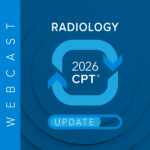Medicare audits against healthcare providers may violate federal statutes and strip away the due-process rights guaranteed under the U.S. Constitution. How does this happen?
We need first to understand what might be called the “hierarchy of authority” governing Medicare audits. It is simple.
Federal statutes govern any Centers for Medicare & Medicaid Services (CMS) regulations that are promulgated. By “govern,” we mean that if there is a conflict between a federal statute and any CMS regulation, the statute would overrule the regulation.
These CMS regulations in turn govern the language in the Medicare Program Integrity Manual (MPIM). And at the bottom of the hierarchy are the Local Coverage Determinations (LCDs), which are inferior to MPIM rules, CMS regulations, and federal statutes. LCDs are not even binding on Administrative Law Judges (ALJs).
Property Rights and Due Process: Constitutional Rights
Legal terminology often is obscure and opaque, but all we need to know is that federal courts have recognized that a patient has a protected due-process interest in receiving medical insurance benefits, like Medicare payments for their treatment. The concept of “due process” is from the Fifth Amendment, which says that no citizen shall be “deprived of life, liberty or property without due process of law.” The 14th Amendment places the same obligation on State courts.
Of course, the term “due process” is a concept that has been defined over the years through thousands of court cases, but we can think of it as simply “being treated fairly, and being given a chance to defend yourself.”
Courts have held that medical insurance benefits for patients are “cognizable under the due process clause.” But what about the healthcare provider? Courts have extended due-process protection to them because the provider is a “party in interest or assignee of the beneficiary” (the patient). This is because when the healthcare provider submits a claim for reimbursement of their service fee, it is based on an assignment of the property interest of the patient.
So, there you have it.
Healthcare providers must get due-process rights. But much of the time, they don’t. Now, why is that? There are two common abuses by auditors that egregiously trample these rights.
Statistical Extrapolations and Due Process
To describe and document all the abuses of auditors would take an encyclopedia, but we can focus on two of the most common violations in the areas of statistical sampling and extrapolation.
First up is documentation. Auditors rarely seem to completely document their statistical work. They often do appear to provide documentation, but when it is picked apart by a statistical expert brought in by the provider, things almost always are missing: crucial things, such as the formulas used, the precision of the work, the list of the complete universe of claims that were audited, the calculations made to get the extrapolation, the random numbers used, the way the sampling was done, the reasoning used, and so on.
Generally, it looks fine at first, but when an attempt is made to replicate the work, often it can’t be done. Too much is missing. Even the MPIM, as low on the totem pole as it is, requires complete documentation, allowing the provider to reproduce the statistical work.
The best analogy I can think of is this: say a bank robber is on trial, and the prosecution says they found their fingerprints on the bank safe, but can’t show them to the court as evidence. The court is asked to take their word for it.
And even if the initial auditor does a somewhat decent job of documentation, the parties that reexamine the audit at higher levels in the appeal rarely document their work. They might “sign off” on the work, but don’t go into details. Sometimes they may reverse a few claims in favor of the provider and recalculate the extrapolation, but they will fail to show their work.
The second issue is the omission of zero-paid claims. Since 2001, when my company entered the forensic statistics business to help providers, they have been complaining about this problem. The auditors take their samples not from the universe of all claims being audited, but only from claims that have been paid. This leaves out claims that were not paid.
Why is this important? Because it is likely that some claims that were not paid should have been paid, but since they are left out of the sample, it automatically biases the extrapolation against the provider.
In spite of 42 U.S.C. §1395ddd(h) and other public laws requiring that the auditor identify both underpayments as well as overpayments, it never happens. And here the MPIM is in direct conflict with federal statutes – and therefore, the MPIM in this matter is invalid.
So, in sum, not providing the full universe of claims, screening out zero-paid claims (making it impossible for the provider to get any credit for claims that wrongfully were not paid), and failing to adequately document the process, including all recalculations through the appeals process, violates the provider’s appeal rights under 42 U.S.C. §1395ff(b).
In other words, common practice among seemingly many Medicare auditors, combined with contradictory flaws in the MPIM, result in systematic and persistent violation of due-process rights of healthcare providers.
How to Fix the Problem
It is a relatively simple matter to fix this problem.
The first step is to identify the source of this violation of federal statutes. That is easy. It is the Medicare Program Integrity Manual (MPIM). It needs to be revised to make it clear that the entire universe of claims, not the “frame,” must be considered by the auditor. It should make it clear that an audit is not a “one-way street;” that is, auditors should diligently look for underpayments as hard as they look for overpayments. For example, zero-paid claims in the sample must be examined with the same rigor and the decisions documented, just like for paid claims.
The next step is to fix the documentation problem. Although the MPIM’s language regarding documentation is relatively clear, it seems that auditors have a hard time reading it. So, for every single step in the appeals process, the complete documentation requirements must be spelled out. This would get rid of the habit of Qualified Independent Contractors (QICs) and others performing calculations of the extrapolation without showing their work. In addition, when in an appeal a QIC or other body signs off on the statistical work, there needs to be something more than a statement that “we reviewed the statistical work and found that it was valid.” That type of shorthand language, so commonly used, it little more than undocumented trash-talk.
Finally, the ALJs need to be subject to more intensive training to help them understand that sloppy and incomplete documentation, and doctoring of sample frames in a way biased against the provider, is invalid statistical work on its face and cannot be tolerated.
In addition, when the contracts for the auditing companies are up for renewal, then their record on playing fair should be taken into account – and those who persist in abusing the constitutional rights of healthcare providers should lose their contracts.











